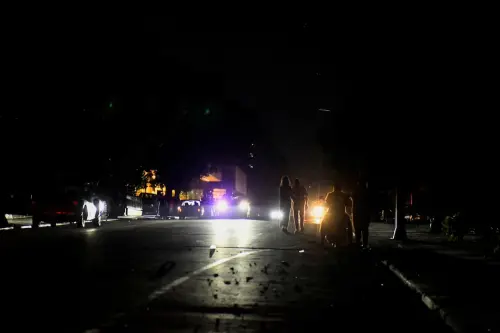Havana experienced a second night of darkness on Saturday as efforts to restore power were hampered by setbacks, leaving millions without electricity on the island. The outage was triggered by a transmission line short at a substation in the city, causing a chain reaction that led to a complete shutdown of power generation across Cuba.
The focus of grid operators initially was on providing electricity to essential services such as hospitals, water supplies, and food production centers. However, by Saturday evening, the two largest power plants in Cuba, Felton in Holguin province, and Antonio Guiteras in Matanzas, remained offline, leaving most homes without power.
Lazaro Guerra, Cuba's top electricity official, expressed hope that both plants would resume operations overnight but cautioned that progress would be slow to prevent further setbacks. In both Havana and Santiago de Cuba, efforts to restore power faltered during the day, forcing operators to restart the process.
The recent islandwide grid collapse exacerbated existing challenges faced by Cuba's fragile power system, which has been strained by fuel shortages, natural disasters, and economic difficulties. Residents outside Havana have already been coping with frequent blackouts lasting up to 20 hours a day.
While some hotels in Havana maintained power via generators for tourists, significant parts of the city were in darkness, with street lights out and many businesses closed. Transportation services continued unaffected by the power outage. However, the ongoing scarcity of essential resources like food, medicine, and water, coupled with prolonged blackouts, has made everyday life increasingly difficult for many Cubans.
The Cuban government attributes its economic struggles to the long-standing U.S. trade embargo, along with stringent regulations hindering financial transactions and access to crucial supplies like fuel and spare parts. President Donald Trump's recent tightening of sanctions against Cuba has further strained the situation.
Efforts to reduce dependence on fossil fuels have seen Cuba collaborating with China to develop state-run solar farms in the hope of alleviating energy challenges. Despite the hardships, some Cubans, like musician Victor Raul Bracho in Havana, continue with their daily routines, acknowledging the need to persevere despite the ongoing issues.
